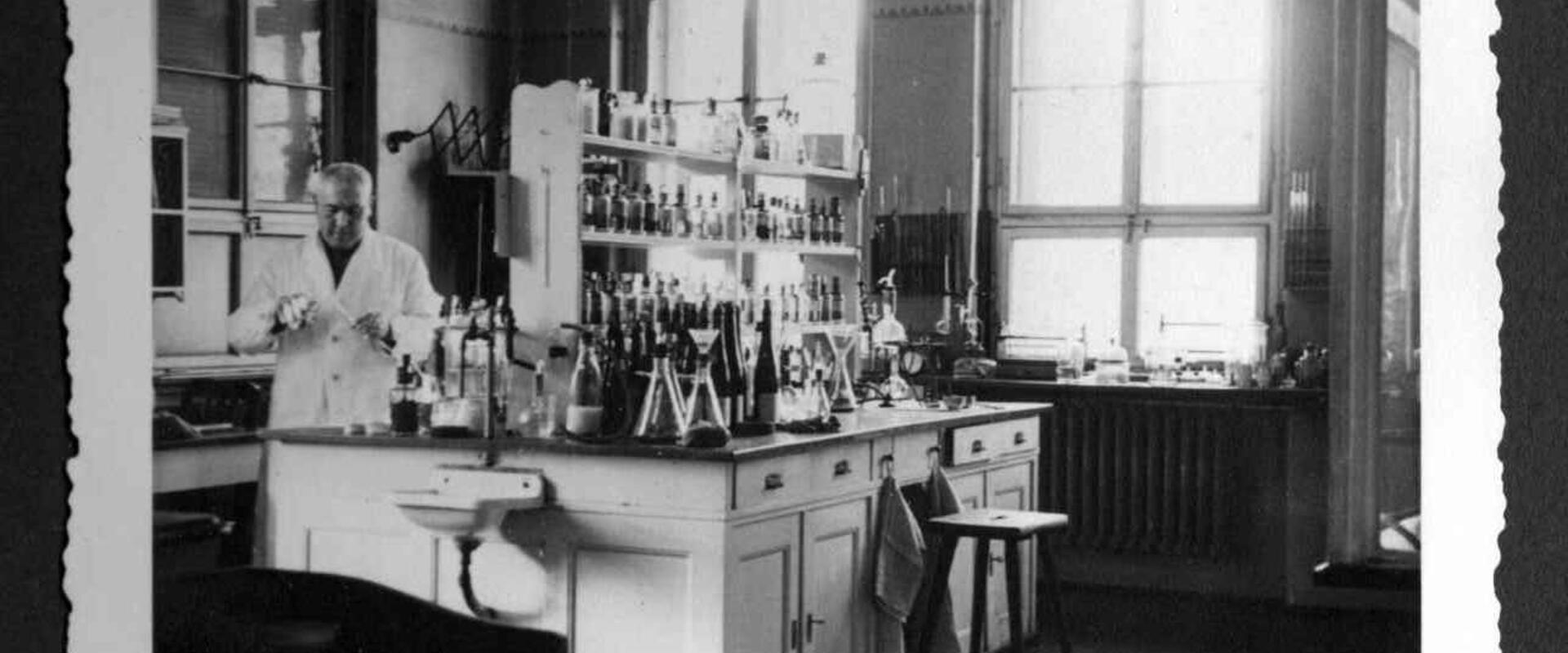
Our history
1875 Foundation
The LUFA Speyer was founded in 1875, at that time still under the name “Agrikulturchemische Versuchsstation des Kreiscomittés des Landwirtschaftlichen Vereins der Pfalz”. The Industrial Revolution and the associated population explosion were probably the main reasons for its foundation. Food production could not keep pace with the rapid population growth. The soil used for agriculture was depleted, crops were insufficiently nourished and diseases and pests in plants and animals could only be combated inadequately. The result was malnutrition or even famine. It is worth remembering the great famine in Ireland in 1845, in which several million people died, mainly due to the epidemic spread of potato blight - their most important staple food. It is therefore easy to understand why the district committee of the Palatinate Agricultural Association was so interested in the establishment of such an experimental station and initially took over the sponsorship.
1884 Expansion of the scope of duties
After state research institutes for foodstuffs and luxury foods had been established in Munich, Erlangen and Würzburg in Bavaria in 1884, the Agricultural District Research Station in Speyer was also recognized as a public research institute for foodstuffs and luxury foods for the administrative district of Palatinate by the highest decree of the Bavarian government in agreement with the Agricultural District Committee of Palatinate on 27 January 1884. Thus, in 1884, the institute was officially named: “Landwirtschaftliche Kreisversuchsstation und öffentliche Untersuchungsanstalt für Nahrungs- und Genussmittel Speyer”.
1902 Transfer to the Palatinate District Association
On November 21, 1901, the District Council of the Palatinate decided to transfer the entire institution to the Palatinate District Municipality (the then name for today's District Association of the Palatinate) from the budget year 1902 onwards.
1909 New building at the Water Tower
Due to the constant increase in agricultural samples to be tested, but also numerous foodstuffs and luxury foods, in particular the testing of wine, grape must and grape mash from 1909 onwards, the demand for more premises and staff became ever greater. On November 24, the District Administrator of the Palatinate decided that a new building should be erected for the entire institute at a different location in the city of Speyer near the Water Tower. The district administrator made funds amounting to 200,000 marks available for this purpose.
1947 Mission for the whole of Rhineland-Palatinate
The rapid development of the tasks can also be seen in the number of employees from 1945 to 1975. In 1945 there were a total of 6 employees, in 1950 there were already 15 and in 1975 a total of 75. However, when looking at the development of personnel and investments since 1949, it must be taken into account that from 1947 onwards, the institution's area of operation was extended to the whole of Rhineland-Palatinate and later also to the Saarland, as there was no comparable facility in other state offices.
1993 Becoming an independant enterprise of the Palatinate District Association
In 1993, after intensive discussion and taking into account an expert opinion, LUFA was converted into an independant enterprise of the Palatinate District Association, including the introduction of commercial accounting.
2006 Residue analysis for agricultural businesses and trading companies
Following a project and development phase in the early 2000s, LUFA Speyer, in cooperation with BOLAP GmbH, has been offering comprehensive tests for pesticide residues and their degradation products in vegetables and fruit for agricultural businesses and trading companies since 2006, particularly in the pre-harvest stage.
2025 150 years for agriculture, the environment and consumer protection
LUFA Speyer is celebrating its 150th anniversary in 2025. Agriculture, the environment and consumer protection are still at the heart of its work today. After continuous development, the independant enterprise of the Palatinate District Association now offers more than 400 different methods for testing soils, seeds, feedstuff, fertilizers, plants, fruit and vegetables and water samples, carries out research projects and is a competent partner for its public and private clients in the region and beyond.